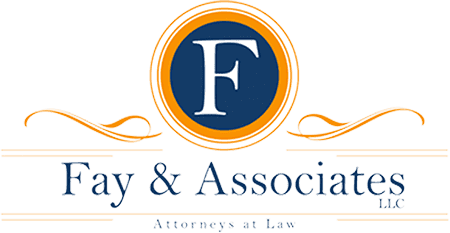Immediate Steps After a Work Injury
Seek Medical Attention
When you've suffered a work injury, your health and safety should be your paramount concern. Immediate medical attention is not only critical for your well-being but also serves as the first step in the legal process of a workers' compensation claim. By visiting a healthcare professional, you ensure that your injuries are promptly and properly addressed, which can significantly affect your recovery time. Moreover, this visit provides a medical record, a vital piece of evidence that documents the extent and nature of your injuries. These records are indispensable when it comes time to substantiate your claim, as they offer a clear link between the injury and your workplace.
Report the Incident to Your Employer
It's equally important to inform your employer about the incident as soon as possible. Reporting your injury promptly is not just a procedural formality; it's a critical step that can affect your eligibility for workers' compensation benefits. Most employers have established protocols for reporting workplace injuries, which often involve specific forms or a designated supervisor to notify. Failure to report your injury within the stipulated deadlines can jeopardize your claim. By promptly notifying your employer, you help ensure that the incident is officially recorded, which is essential for the subsequent claims process.
Understanding Your Rights and Responsibilities
Know Your Worker's Compensation Rights
As an employee in Minneapolis, MN, it's crucial to understand your rights under workers' compensation laws. These rights entitle you to various benefits if you're injured on the job, including coverage for medical expenses, compensation for lost wages, and rehabilitation services. Eligibility for these benefits typically requires that the injury occurred during employment and was reported in a timely fashion. Familiarizing yourself with the process for filing a claim can help ensure that you receive the benefits you're entitled to. It's also beneficial to know that workers' compensation is a no-fault system, meaning that benefits can be obtained regardless of who was at fault for the injury.
Legal Obligations and Protections
Both employers and employees have legal obligations following a work injury. Employers must provide a safe work environment, and when an injury occurs, they must file a report with their workers' compensation insurance. They are also obligated to not discriminate or retaliate against employees who file a claim. As an employee, you're required to report the injury and cooperate with the claims process. Fortunately, there are strong legal protections in place for injured workers, including the right to return to your job after recovery and the right to refuse certain work that could exacerbate your injury. Understanding these protections can empower you to navigate your recovery with confidence.
Navigating the Claims Process
Filing a Workers' Compensation Claim
Filing a workers' compensation claim in Minneapolis, MN, involves several key steps. Initially, you must complete the required forms provided by your employer or their insurance company. It's imperative to fill out these forms accurately and submit them within the state-mandated deadlines. Be thorough when describing the injury and how it occurred; clarity and detail can prevent misunderstandings that might delay your claim. Additionally, it's wise to keep copies of all documents submitted for your records. If you're unsure about any part of the process, don't hesitate to seek guidance from a professional, as this can greatly increase your chances of a successful claim.
Dealing With Claim Disputes
Unfortunately, not all workers' compensation claims proceed smoothly. If your claim is denied, it's important to understand the common reasons for denial, such as disputes over the injury being work-related or questions about the timing of the report. If you find yourself in a dispute, familiarize yourself with the resolution process, which may involve mediation, a hearing, or an appeal. In such situations, the expertise of a seasoned personal injury attorney can be invaluable. Legal professionals can navigate the complexities of the system, advocate on your behalf, and work to secure the benefits you deserve.
Maintaining Documentation and Records
Importance of Detailed Record-Keeping
Meticulous record-keeping is the backbone of a strong workers' compensation claim. From the initial medical reports to every subsequent doctor's visit, each piece of documentation contributes to a comprehensive narrative of your injury and recovery. It's essential to save all correspondence related to your injury, including emails and letters from your employer or their insurance company. Additionally, maintaining a log of any expenses incurred due to the injury can be crucial for reimbursement. These records not only support your claim but also help protect your rights should any disputes arise.
Monitoring Your Claim and Benefits
After filing your claim, staying proactive in monitoring its progress is key. Keep in regular contact with your employer's insurance carrier to check the status of your claim and be aware of when you can expect benefits to commence. If there are any changes in your medical condition, promptly update all relevant parties. This ongoing vigilance ensures that you're not caught off guard by any issues and that you receive all the benefits you're entitled to. Remember, the goal is not just to return to work but to do so in a manner that prioritizes your health and financial stability.
Returning to Work After Recovery
The Process of Returning to Work
Reintegrating into the workplace after a work injury can be a delicate process. In Minneapolis, MN, employers are required to make reasonable accommodations for returning employees. This may include modified duties, reduced hours, or ergonomic adjustments to the workspace. It's important to communicate openly with your employer about your capabilities and any restrictions your doctor has advised. A gradual return to work plan can help ease the transition and reduce the risk of re-injury. By collaborating with your employer, you can find a balance that supports your continued recovery while allowing you to resume your professional role.
Long-Term Recovery and Support
The journey to recovery doesn't always end with a return to work. Some injuries may have lasting effects that require ongoing management and support. It's important to be aware of the resources available to you, such as vocational rehabilitation or support groups. If your injury necessitates a career change, there may be training programs to help you transition into a new role. Remember, your value as an employee is not diminished by an injury, and with the right support, you can continue to have a fulfilling career.
At Fay & Associates in Minneapolis, MN, we understand the challenges that come with a work injury. Our experienced personal injury attorneys are dedicated to guiding you through the claims process and ensuring your rights are protected every step of the way. If you're dealing with a workers' compensation claim or facing difficulties in your recovery, we're here to help. Contact us online or give us a call at (612) 888-8354 today to ensure that your path to recovery is as smooth and fair as possible. Let us be your advocates in securing the benefits and support you deserve.

.2403220829414.jpg)


